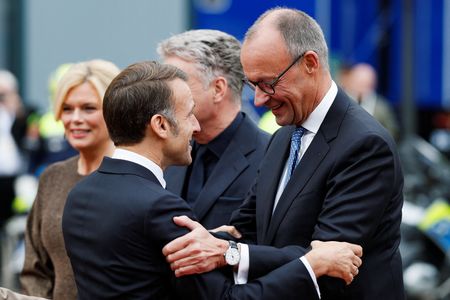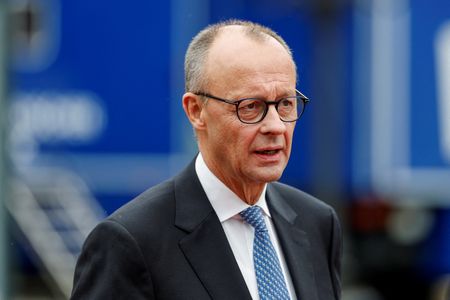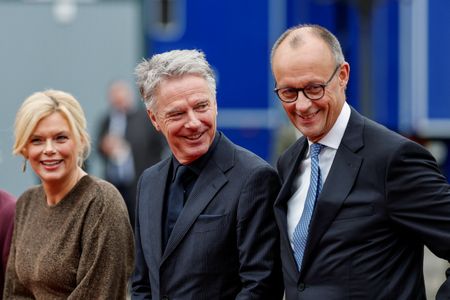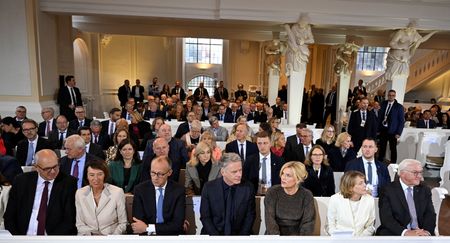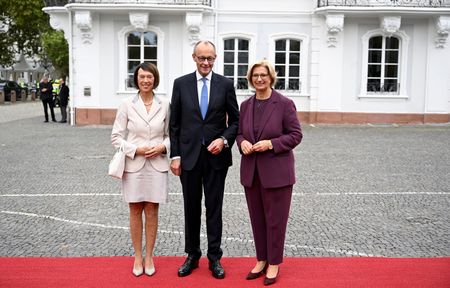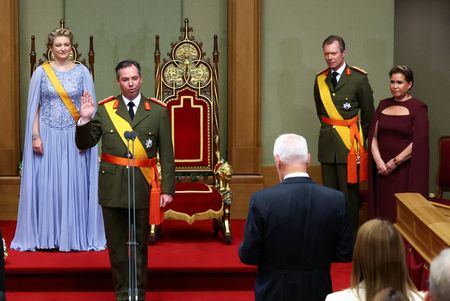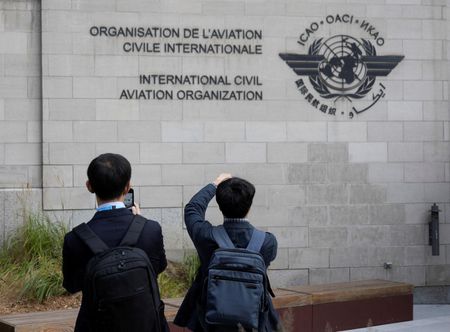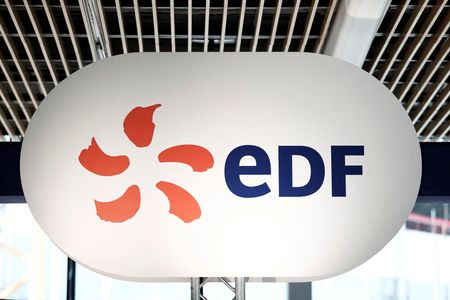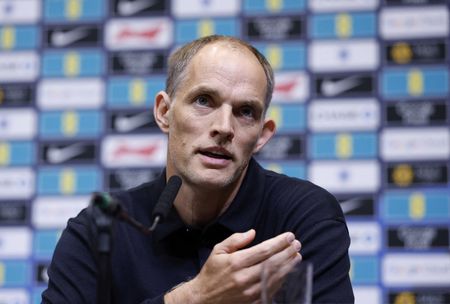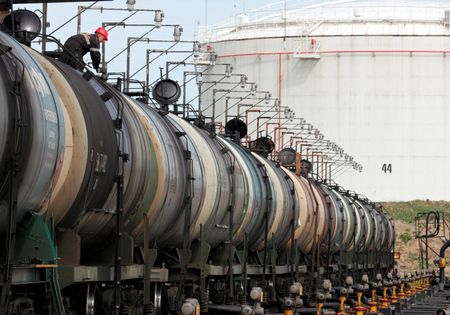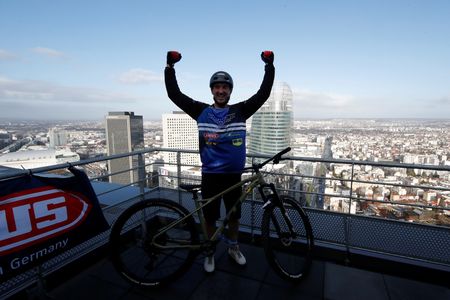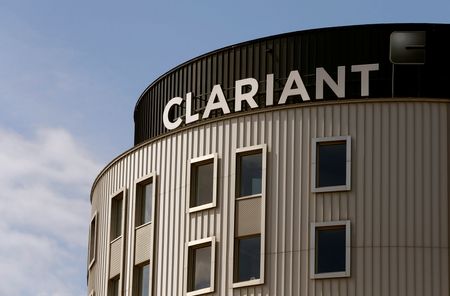By Tilman Blasshofer and Alessandro Parodi
SAARBRUECKEN, Germany (Reuters) -The leaders of Germany and France marked the 35th anniversary of Germany’s democratic reunification on Friday by calling for more resolve to check the spreading appeal of what they called the “dark enlightenment” of authoritarianism.
German Chancellor Friedrich Merz and French President Emmanuel Macron said Europe must do more to counter illiberal, anti-immigrant parties surging in opinion polls, in part by bolstering the continent’s flagging economy.
‘DARK ENLIGHTENMENT’
“New alliances of autocracies are forming against us and attacking liberal democracy as a way of life,” Macron told an audience of dignitaries from both countries in Saarbruecken on Germany’s border with France.
“In the face of the return of the dark enlightenment … there is a path to a new enlightenment,” Macron said, “a way to love culture, music, literature, conversation and debate, to believe that respect and science are stronger than hate and fury.”
He was echoing remarks by Merz, who had earlier warned that economic troubles across the European Union were giving openings to far-right nationalist parties offering radical solutions at odds with democracy.
“Years of irregular, undirected migration to Germany have polarised our country,” Merz said, asking its citizens to recognise the value of living in a democracy under rule of law.
“Politics, the state, the government have their responsibility,” he said. “But the scale of the challenge must be understood by us all, by every citizen in our country.”
CEREMONY MARKS 1990 END OF GERMANY’S POST-WAR DIVISION
Germany’s Reunification Day on October 3 commemorates the 1990 end of the nation’s post-World War Two division into a western democracy and an eastern, Soviet-dominated Communist regime, symbolised by the Berlin Wall dividing the capital.
Merz took office in February after an election campaign marked by emotional rhetoric on migration. The far right now leads his conservatives in some polls at a time when Germany’s export-dependent, high-tech economy faces its biggest challenge in decades due to U.S. President Donald Trump’s tariff blitz.
Germany’s economy, Europe’s largest, has been hard hit by U.S. protectionism and a competitive onslaught from China. It has registered barely any growth since the end of the COVID pandemic, contributing to a broad mood of malaise.
Both leaders are outspoken supporters of Ukraine against Russia’s invasion and have called for more European strategic autonomy in the face of a United States they see as turning away from Europe. Both face stiff challenges from far-right parties with strong pro-Russian elements leading in many opinion polls.
(Additional reporting by Andreas Rinke in Berlin and Brice Makini in Paris; writing by Thomas Escritt; editing by Tomasz Janowski and Mark Heinrich)

